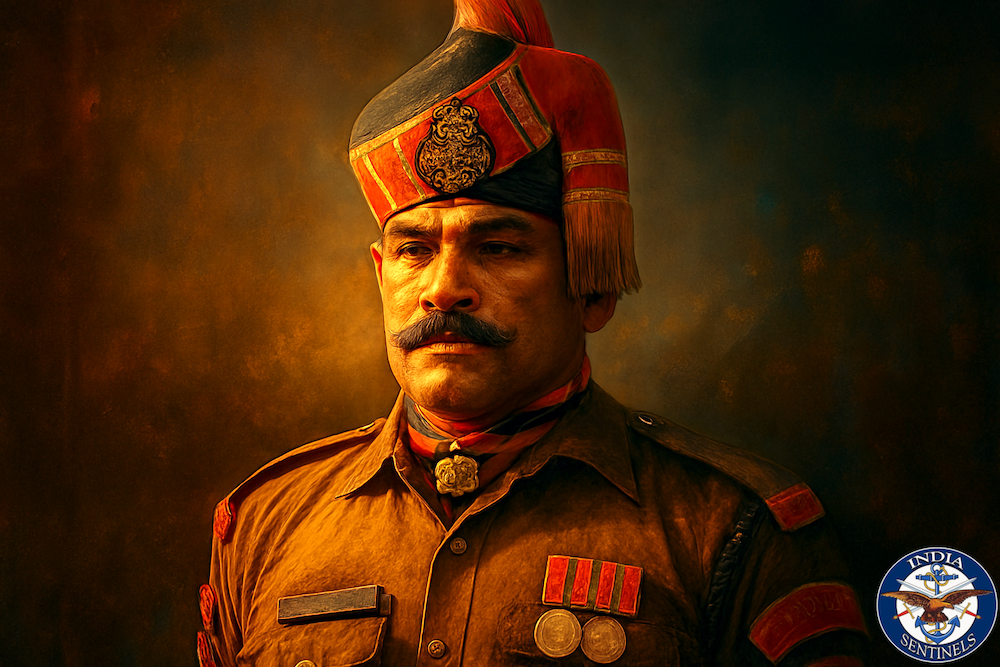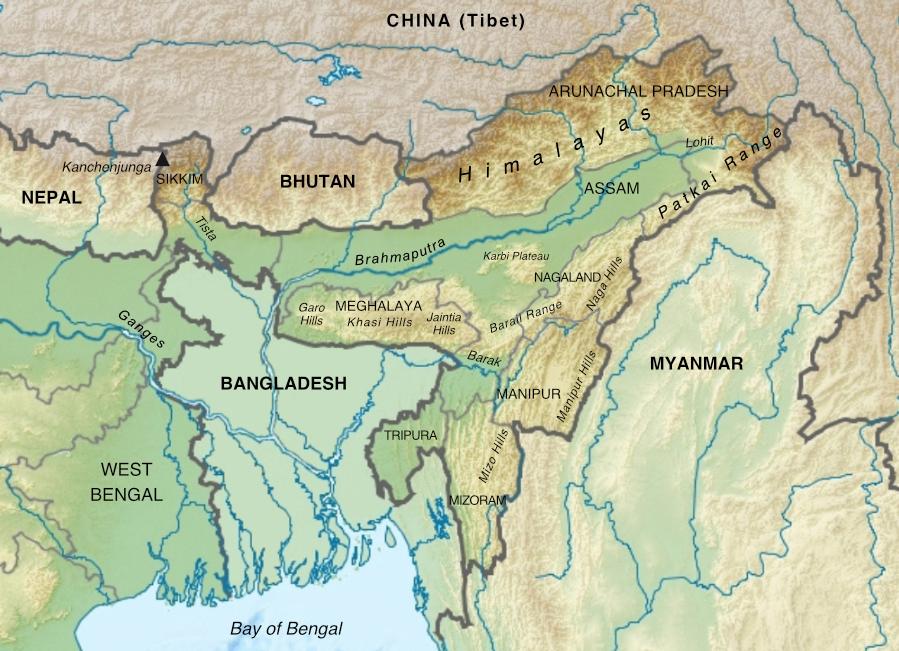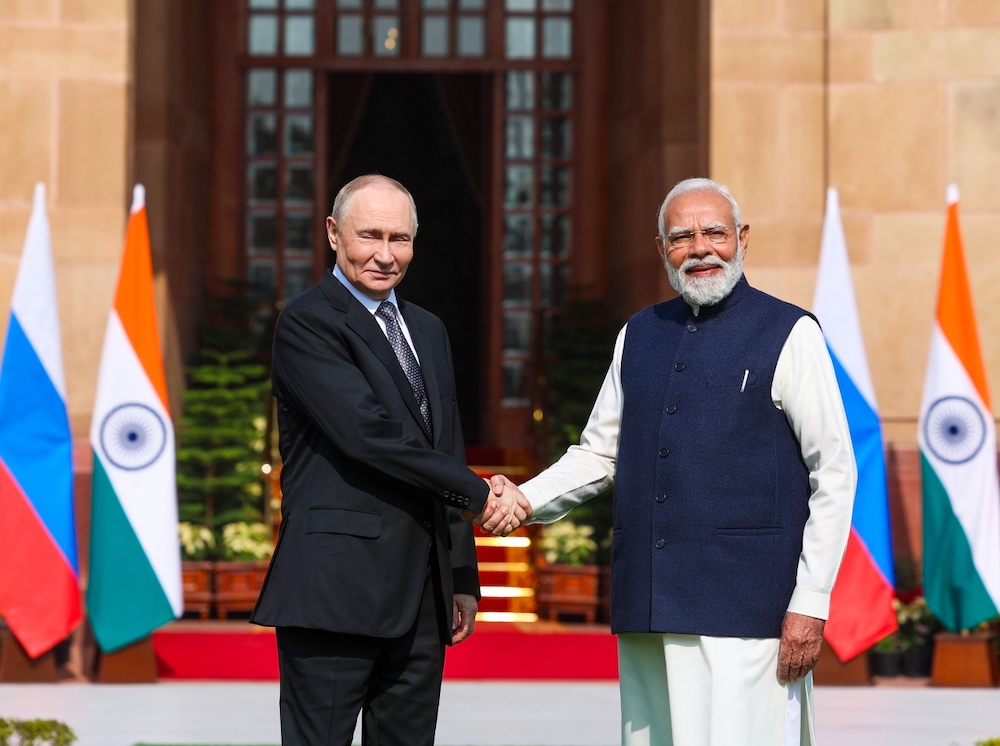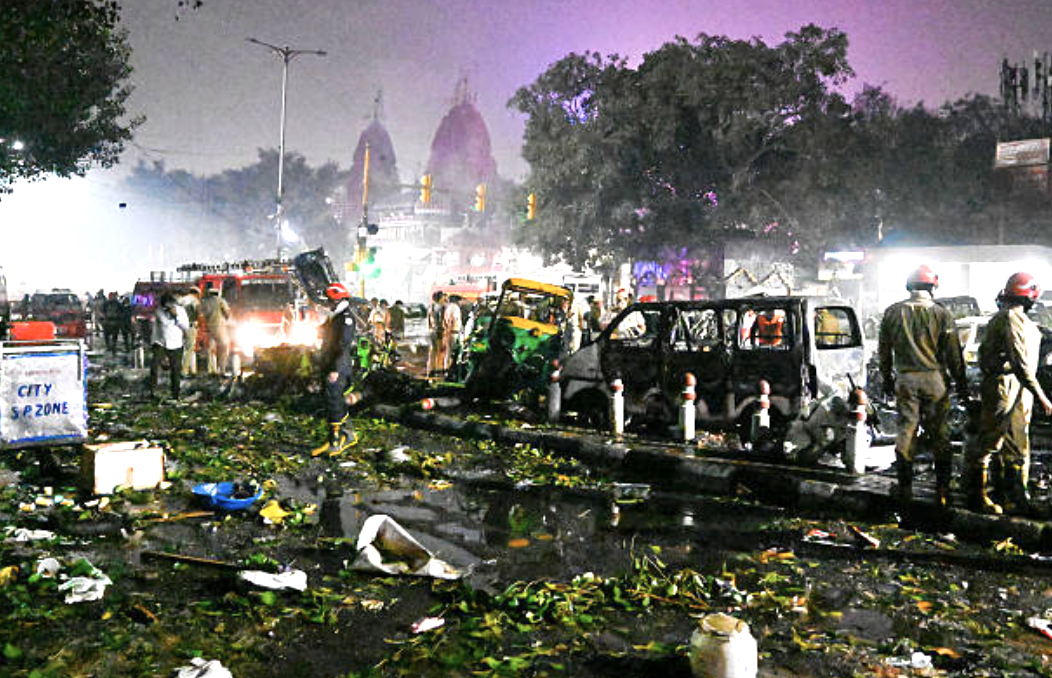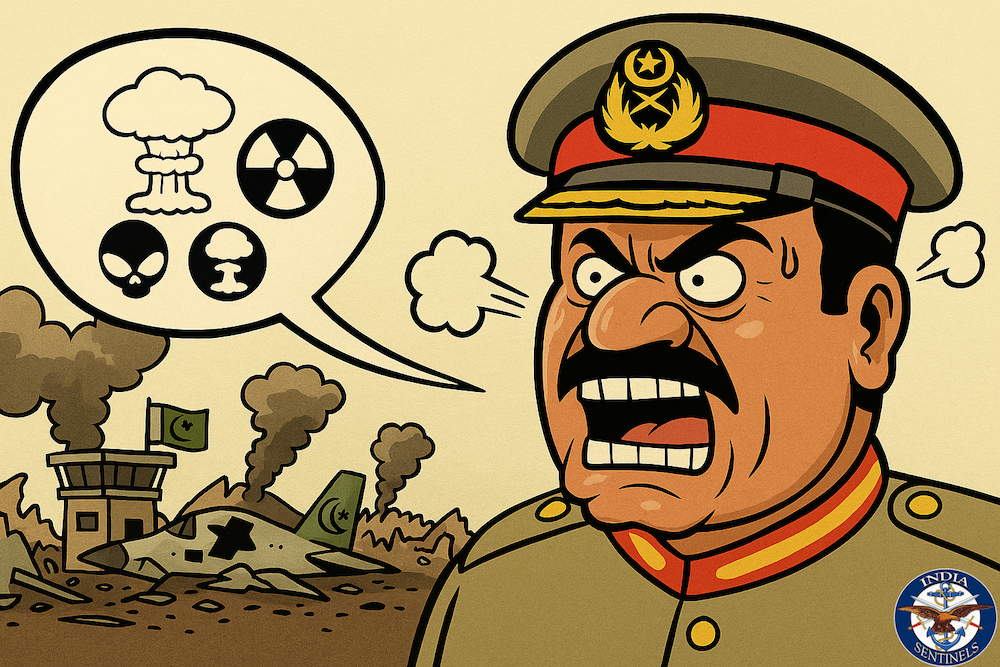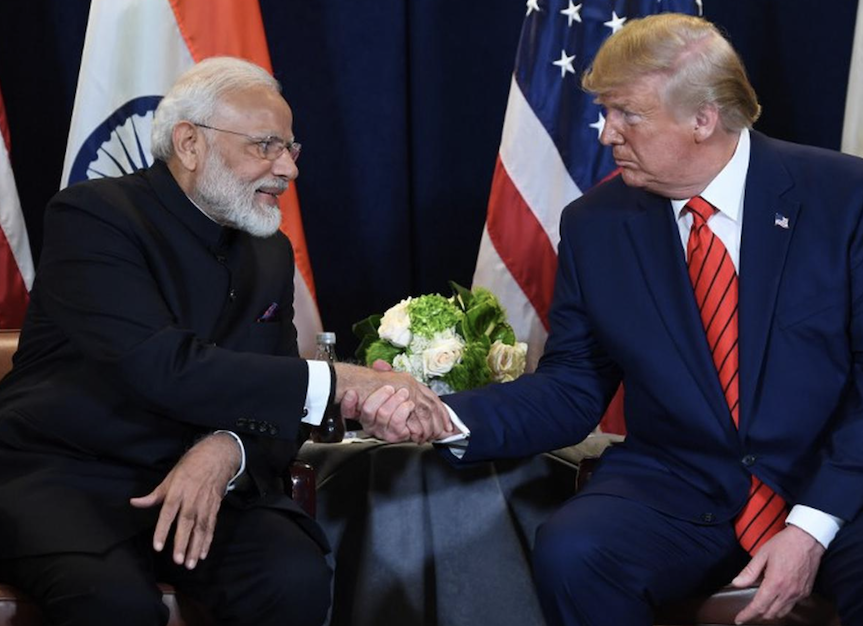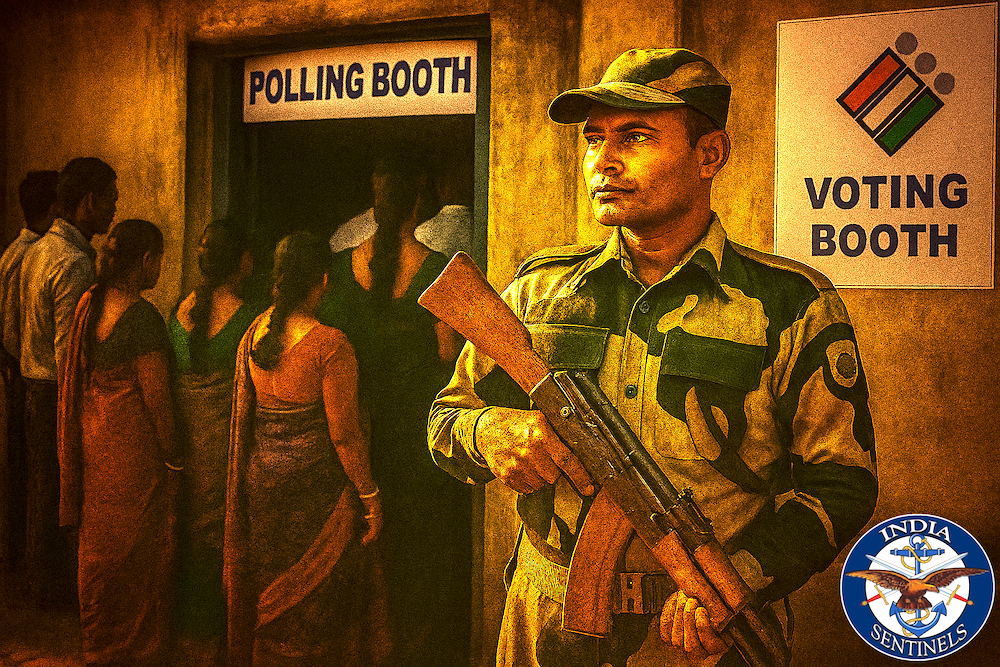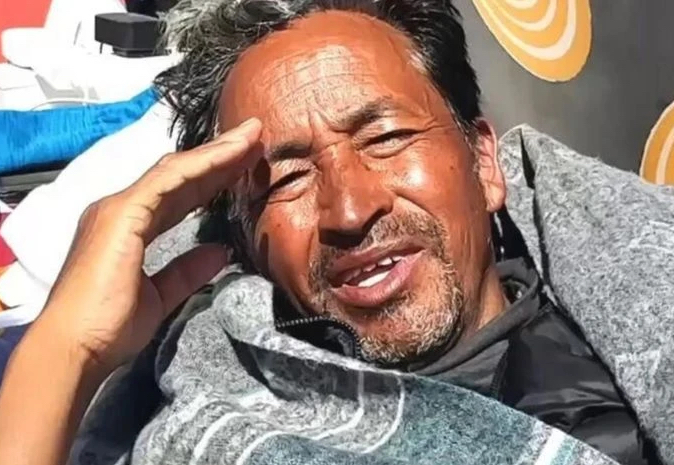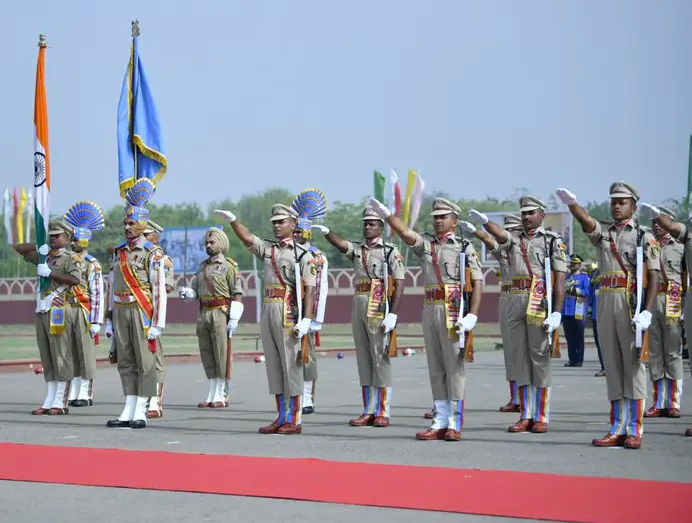 Fresh officers during a pass-out ceremony at the CRPF Academy at Kedarpur, Gurugram, Haryana. (File photo for representation.)
Fresh officers during a pass-out ceremony at the CRPF Academy at Kedarpur, Gurugram, Haryana. (File photo for representation.)
On May 23, the Supreme Court delivered a landmark judgment that vindicated the professional capabilities of central armed police forces (CAPF) cadre officers. The court’s reasoned decision directed the Union home ministry to implement reforms recognizing these officers’ command potential and operational maturity – a verdict that promises to reshape India’s security architecture.
The ministry’s subsequent review petition, filed as a last constitutional recourse, met its inevitable conclusion on October 28. A bench comprising chief justice-designate, Justice Suyra Kant, and Justice Ujjal Bhuyan, dismissed the petition after careful examination, stating that no grounds for review existed. This dismissal has cleared the path for implementation, leaving no further legal obstacles in its way.
Read also: Democratic Dilemma – How elections compromise border security
Recognition of Professional Maturity
The judgment’s significance lies in its explicit recognition of two interconnected pillars: the command potential of CAPF cadre officers and the professionalism required to maintain force quality. These officers have evolved through decades of operational experience, grit, and specialized training. They are no longer nascent commanders requiring oversight – they have matured into professionals capable of independent command of India’s paramilitary forces.
This evolution did not occur overnight. CAPF cadre officers undergo rigorous basic training at their respective academies, followed by mid-career courses and management training designed to navigate the complexities of modern security environments. Their professional development encompasses operational tactics, intelligence coordination, and logistics management across multiple agencies – skills honed through actual deployment rather than theoretical instruction.
Read also: Ladakh Unrest – When promises meet reality on India’s strategic frontier
Constitutional Mandate
India’s national security framework comprises both internal and external security domains. Under the Seventh Schedule of the Constitution, Article 246, List I (Union List), Entry 2 explicitly provides for “naval, military and air forces and any other armed forces of the Union.” The Border Security Force (BSF), Central Reserve Police Force (CRPF), Indo-Tibetan Border Police (ITBP), Central Industrial Security Force (CISF), and Sashastra Seema Bal (SSB) constitute these “other armed forces”, raised specifically for India’s internal and external security.
These forces require officers who understand their unique traditions, ethos, conventions, and operational requirements from the ground up. The Supreme Court recognized this fundamental reality: professional forces demand professional leadership that grows organically within their ranks, not imported from parallel services with different operational mandates.
Read also: My Identity Crisis – The CAPF soldier’s perennial dilemma
Proven Combat Credentials
The operational record of CAPF cadre officers speaks volumes. During the 1971 Indo-Pakistan War, BSF officers distinguished themselves in combat operations. Ram Krishan Wadhwa received the Maha Vir Chakra, while numerous others earned Vir Chakras and Sena Medals for gallantry. These were not ceremonial honours – they recognized actual combat performance under fire.
The 1999 Kargil conflict saw the BSF playing a crucial supporting role in army operations. The force’s intelligence wing provided actionable intelligence that earned appreciation at the highest levels of government. More recently, during the 2020 Indo-China border tensions, ITBP cadre officers demonstrated exceptional operational coordination and fighting spirit in challenging high-altitude conditions.
Operation Sindoor – the recent counterterrorism operation which snowballed into a military conflict – showcased the apex of CAPF-Army coordination. BSF cadre officers at the ranks of deputy inspector general and commandant executed seamless operational coordination with army units. The prime minister, Narendra Modi; the home minister, Amit Shah; the chief of Army staff, and the director general of military operations all publicly acknowledged this professional competence. Modi specifically praised the interagency coordination that made the operation’s success possible.
Read also: PM’s Manipur Visit – A welcome initiative, but is it too late?
Addressing Federalism Concerns
The Supreme Court’s judgment carefully considered arguments about federalism and centre-state coordination. Critics had suggested that Indian Police Service (IPS) officers were essential for coordinating between state police forces and CAPFs. The court found this argument unpersuasive.
Operational coordination between CAPFs and state police forces typically occurs at the deputy inspector general and commandant levels – positions now held by CAPF cadre officers with proven coordination capabilities. The judgment noted that this arrangement has functioned effectively in numerous operations across diverse threat environments.
Moreover, the current structure retains additional director generals and director generals from the IPS cadre for higher-level coordination with state counterparts. This ensures that federal sensitivities are addressed whilst allowing operational command to rest with those who have spent their careers understanding CAPF requirements.
Read also: Beyond Fencing – Complex reality of India’s most vulnerable border
Way Forward: OGAS and NFFU
The judgment mandates granting organised Group “A” services (OGAS) status and non-functional financial upgradation (NFFU) to CAPF cadre officers – reforms long overdue. OGAS status would place CAPF officers on par with their counterparts in other organized services, recognizing their equivalent contribution to national security. NFFU would provide career progression opportunities comparable to those available in other central services, addressing a significant morale and retention issue.
Implementation should include a time-bound phasing out of IPS officers from operational CAPF command positions. This does not diminish the IPS’s crucial role in maintaining law & order at the state level. Rather, it recognizes that paramilitary forces – with their unique operational requirements, deployment patterns, and security mandates – require leadership steeped in their specific professional culture.
The home ministry must now move beyond legal manoeuvring and embrace implementation. The Supreme Court has provided a comprehensive roadmap based on extensive deliberation. Further delay would signal a troubling disregard for judicial authority and the legitimate aspirations of officers who have repeatedly proven their capabilities in the field.
Read also: End Colonial Charade – Implement SC ruling on CAPF officers now
Aligning With National Vision
PM Modi has articulated “Panch Pran” (five resolves) for India’s development trajectory. The second pran calls for removing all traces of colonial mindset from the national mentality. The current IPS-dominated CAPF command structure is arguably a colonial legacy – an arrangement born from the British practice of maintaining central control over paramilitary forces through generalist administrators rather than specialist commanders.
Implementing this judgment would represent a tangible step toward fulfilling Modi’s vision. It would recognize that post-Independence India has developed professional security services capable of self-governance without requiring oversight from generalist administrative services, however competent those services may be in their own domain.
Read also: Supreme Court’s CAPF judgment demands immediate implementation
Urgency of Timely Implementation
India’s constitutional institutions function best when their decisions are respected and implemented promptly. The Supreme Court has spoken with clarity and finality. The judgment recognizes that CAPF cadre officers – tested in operations from counterinsurgency in Kashmir to border defence on the Himalayas – have earned the right to command their forces independently.
The Union home ministry should view this as an opportunity to strengthen India’s security apparatus by aligning authority with expertise. Officers who have dedicated their lives to these forces, who understand their operational culture, and who have demonstrated their command capabilities in the crucible of actual operations, deserve to lead them.
Implementation will honour not just a court judgment but the sacrifices of CAPF officers who have laid down their lives protecting India’s territorial integrity and internal security. It will also send a powerful message: that merit, professional competence, and operational experience – not administrative pedigree – determine command in India’s armed forces.
The time for debate has passed. The time for implementation has arrived.
Disclaimer: The views expressed in the article are the author’s own and don’t necessarily reflect the views of India Sentinels.
Follow us on social media for quick updates, new photos, videos, and more.
X: https://twitter.com/indiasentinels
Facebook: https://facebook.com/indiasentinels
Instagram: https://instagram.com/indiasentinels
YouTube: https://youtube.com/indiasentinels
© India Sentinels 2025-26

